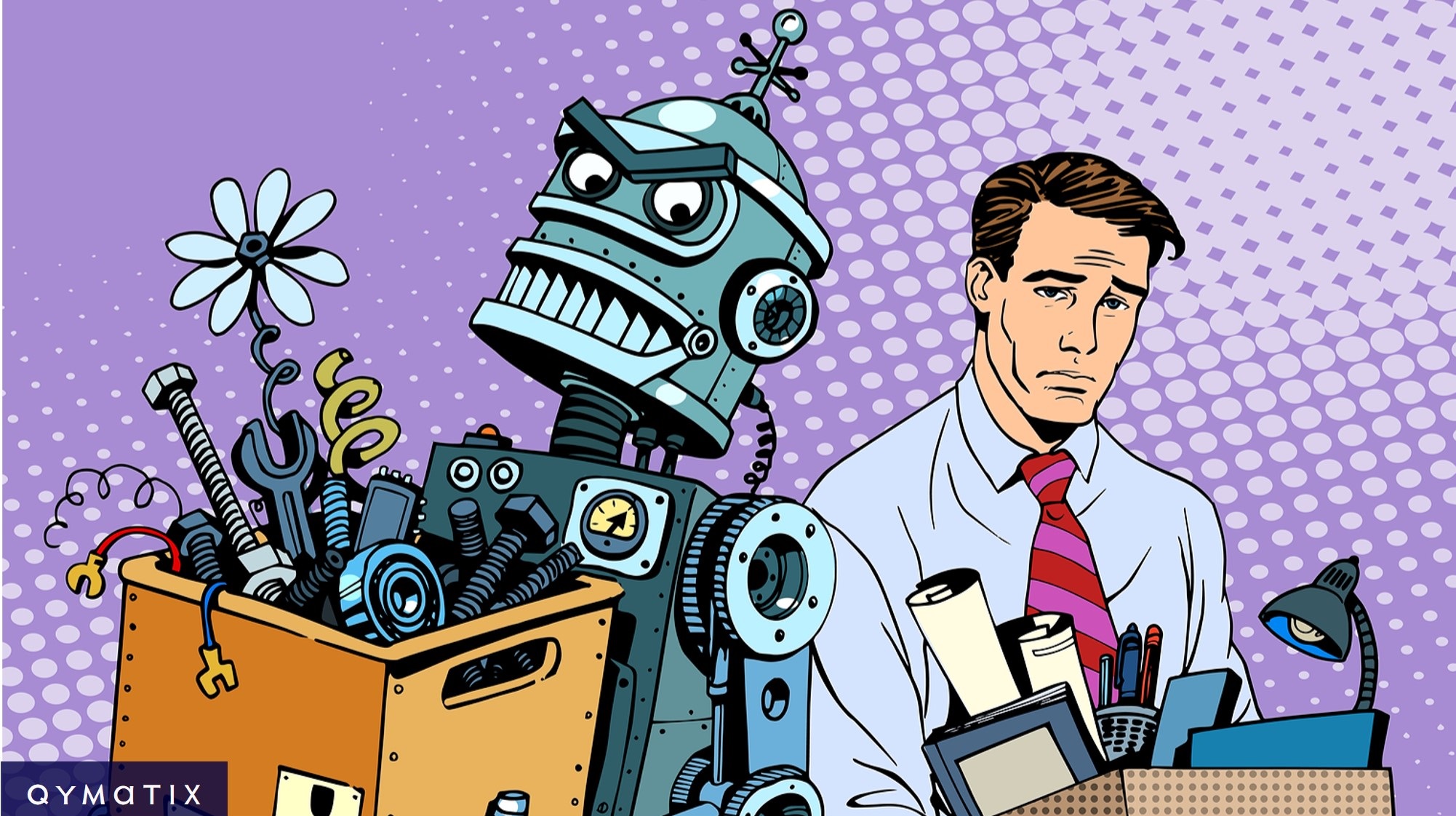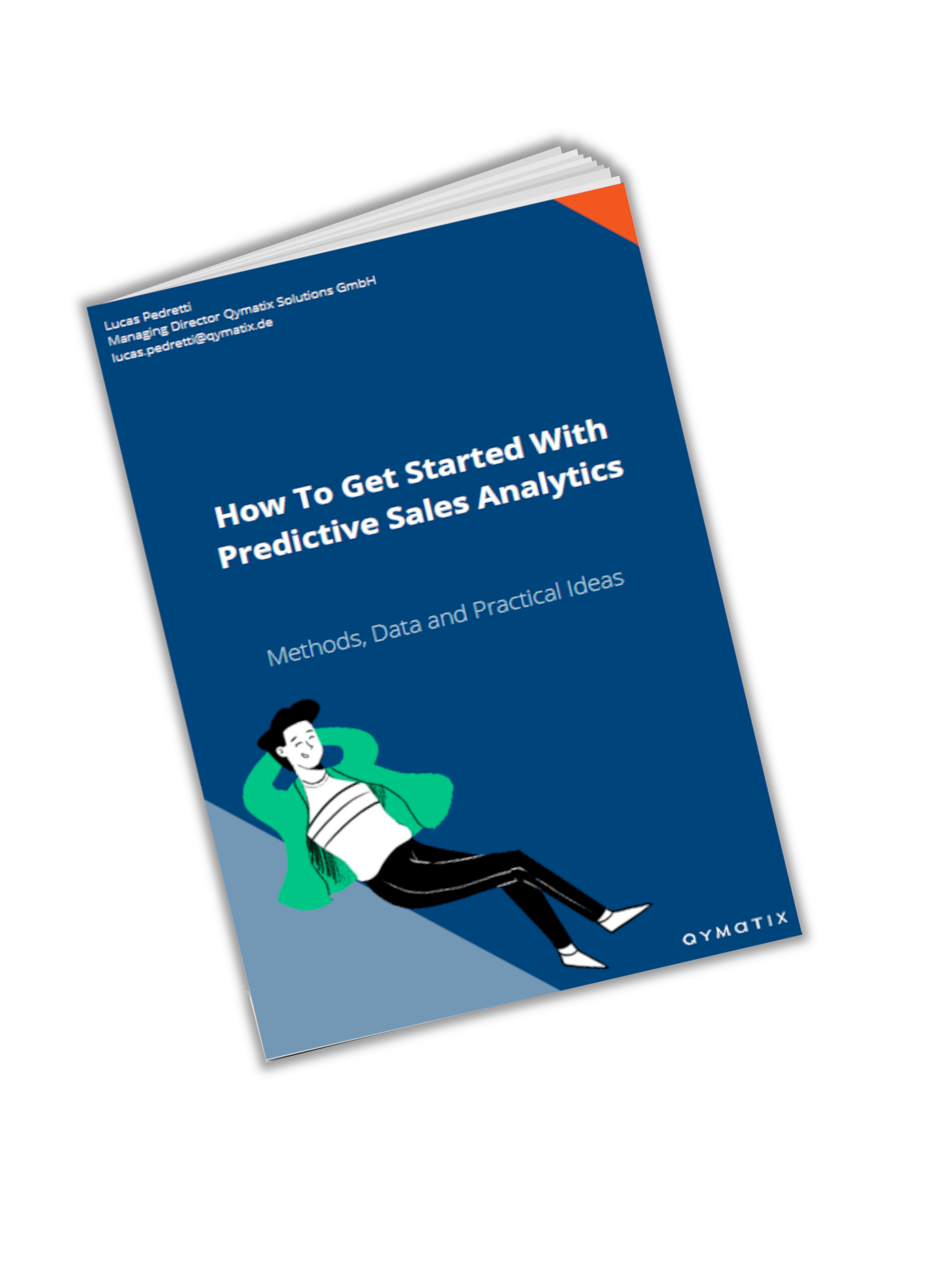The Case for AI in B2B Sales

Please enter your Email address
Why artificial intelligence in B2B sales is unavoidable and what you can do about it.
Adapt or die – a fact of life for B2B sales nowadays. Key Account Managers know this too well, for they have very different tasks and jobs, as compared with just ten years ago.
E-commerce is by no means just a new sales channel. Order-takers roles will disappear in the next decade. This shift in skills will strongly influence how salespeople are selected and how they perform. Also, artificial intelligence impacts the role of B2B sales.
AI is not going to substitute complex technical sales positions soon. However, it is already replacing repetitive sales tasks, such as analysing sales data, writing an email or answering a service chat.
What can companies do about these changes? First, they cannot stay behind in the AI race. Second, managers should focus on improving Customer Lifetime Value and invest in Customer Relationships. Third, sales leaders should thoroughly evaluate the role of their salespeople and look for specific applications of artificial intelligence in sales.
Business-to-Business Sales is experiencing dramatic changes.
Sales in B2B is undergoing dramatic changes. The revolution started by the internet and its ubiquitous access to information has invaded the sales profession.
Buyers select vendors nowadays based on publicly accessible information and only contact a sales representative once their decision is – almost – made.
Salespeople have a different role nowadays. The classic B2B salesperson can no longer work as a purely order-taker, for customers have changed the way they buy. The internet as a technology enabler brought us B2B e-commerce.
E-commerce in the B2B field is a catalysator of the shifting role of sales. It not only opens a new sales channel, but it also allows the usage of a relevant and valuable data source. E-commerce can even define new business models.
Increased productivity is what makes a B2B sales team competitive in the AI era.
How AI is becoming your new sales robot.
The shifting space in B2B distribution does not stop in E-commerce. In addition to the internet as a source of information and to e-commerce, other underlying technological trends are altering the B2B landscape, such as mobile CRM and cloud ERP. Both technologies might not be in the radar of trend scouts, yet their increased adoption plays a central role on the enablement of artificial intelligence in sales.
Furthermore, artificial intelligence in sales comes on the form of chatbots and predictive analytics solutions. Chatbots are taking over first customers interactions. Business Insider Intelligence, a famous American financial and business news website, reports that by 2020, chatbots have the potential to save companies $15 billion in sales representatives, in the United States alone.
The overall increment of sales data and the technological shift towards marketing and sales automation enables attractive applications on the field of predictive sales analytics.
Predictive analytics has the power to reduce customer churn, discover cross-selling opportunities and improve dynamic pricing. These activities can enhance the productivity of a B2B sales team by 20 %.
Increased productivity is what keeps a sales team competitive in this changing AI era. It can also generate strong competitive advantages for first movers.
CALCULATE NOW THE ROI OF QYMATIX AI SALES SOFTWARE
What should companies do about AI in Sales?
Companies should not wait to start using artificial intelligence for B2B sales. However, besides getting started, there are some specific actions firms can undertake in this new AI landscape.
First, any business should aim to own the customer journey and buying process. Customers will buy in different ways and possibly over a combination of channels. They will source information from unrelated data sources, such as blogs, technical articles, conferences. In this new AI era, it is critical that businesses understand and manage how the buying process works.
Managers should use artificial intelligence to support their sales team experience and judgment.
Second, companies should invest in acquiring and developing current relationships. Selecting and changing vendors is not something that will happen overnight in B2B and therefore investing in the customer relationship while increasing Customer Lifetime Value (CLV) both pay-off.
Finally, managers should thoughtfully contemplate the new role of B2B salespeople. Artificial Intelligence is redefining their role. It has pros and cons for them. Managers have with AI a robust technology, and they should use it to improve sales performance.
AI allows sales leaders to implement a “people first” strategy for AI handles time-consuming tasks. Sales executives should use artificial intelligence to support and supplement their sales team experience and judgment.
The Case for AI in B2B Sales – Summary
Our clear recommendation: get started with artificial intelligence in sales. Successfully adopting AI in sales will make a huge competitive difference in the coming years.
Business-to-Business sales is changing intensely. E-commerce opens new opportunities in distribution, also generates an increasing amount of data. The job of salespeople is also shifting. Order takers will disappear from the B2B landscape.
Managers cannot ignore this shift. They should proactively define the new role of Sales, assisted by AI. Artificial intelligence replaces repetitive jobs, such as predicting customer churn, analysing sales data and first level customer communication. It will not replace salespeople in technical and complex tasks.
Leading companies should be the firsts to implement AI solutions for sales. Their managers should improve Customer Lifetime Value using predictive analytics and invest in their relationships with customers.
Finally, sales executives need to define a new role for their Key Account Managers and provide them with a competitive advantage using artificial intelligence for sales.
CONTACT US TODAY FOR A LIVE DEMO
Free eBook for download: How To Get Started With Predictive Sales Analytics – Methods, data and practical ideas
Predictive analytics is the technology that enables a look into the future. What data do you need? How do you get started with predictive analytics? What methods can you use?
Download the free eBook now.
- We will use this data only to contact you for discussing predictive sales KPIs. You can read here our declaration on data protection.

Further Read:
Victor Antonio (2018). “How AI Is Changing Sales” – Harvard Business Review
80% of businesses want chatbots by 2020. Business Insider

